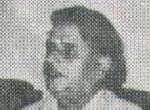by Shyam Kaul
 Poet,
writer, dramatist, scholar, researcher, encyclopaedist, specialist in Kashmir's
cultural and literary heritage, authority on the Valley's Rishi tradition - all
rolled into one - Moti Lal Saqi.
Poet,
writer, dramatist, scholar, researcher, encyclopaedist, specialist in Kashmir's
cultural and literary heritage, authority on the Valley's Rishi tradition - all
rolled into one - Moti Lal Saqi.
A simple villager, who never shed off his pastoral
homeliness, humility and open-heartedness, who never allowed even a grain of
false ego enter his head, inspite of recognition, both at state and national
levels, and who always lived the lily of an honest and eager learner till his
last breath. That was Saqi - ever lively, ever communicative, ever cheerful.
When I think of Saqi the words of the great French
philosopher Voltaire, come to my mind. He had said, "not to be occupied,
and not to exist, amount to the same thing".
Saqi kept himself perennially occupied with finer
pursuits in life. Put your finger anywhere on the literary and cultural canvas
of Kashmir, and you will find Saqi's name there, as a contributor, a researcher,
an elucidator, a commentator or a scholar. All that kept him occupied were his
creative endeavours and his pen seemed to reach everywhere. In these days of
pin-pointed specialization, one hardly finds any equal to this man of
multifarious brilliance.
When the physical and physiological makeup of his
person, especially his heart? prevented him from keeping himself actively
occupied, as he had done all his life? Saqi ceased to exist. He died.
Like all displaced Kashmiris, Saqi's soul had been
deeply lacerated when circumstances drove him out of Kashmir, the land of his
ancestors. Everyone loves his land of birth, but Saqi had done so, sometimes
with the passion of a lover, sometimes with the care of a doting mother, and
sometimes with the dedication of an ardent admirer. His only possession, only
asset and only wealth, was his pen, which he used all his life in praise of
Kashmir.
Some years back I once told him that since our
displacement, he had gone a little slow with his pen. He responded with a deep
sigh and recited a coupled of Nadim:
Mye khoon-e-dil az syatha chhu chyon kyut
Tsu thav pagah kyut sharaab Shaqi
Then, after a pause, he added, with yearning in his
eyes, "because our pagah' (tomorrow) will be in Kashmir". He
did not live to see the 'pagah' of his dreams. Many of us won't, either.
Reproduced From:
Unmesh
- Monthly Newsletter of N.S.
Kashmir Research Institute
